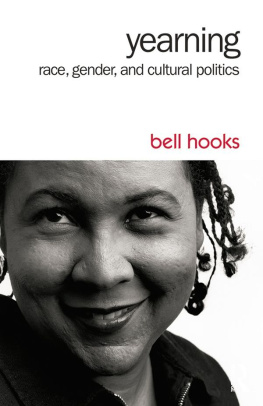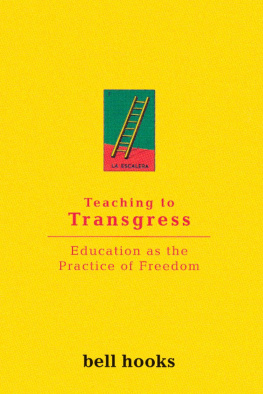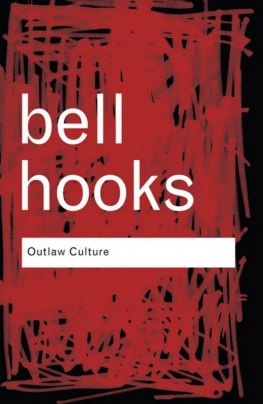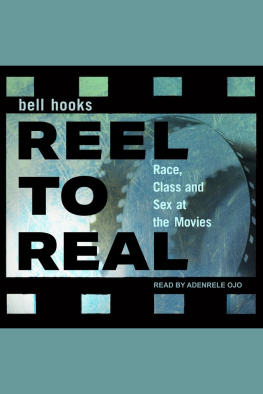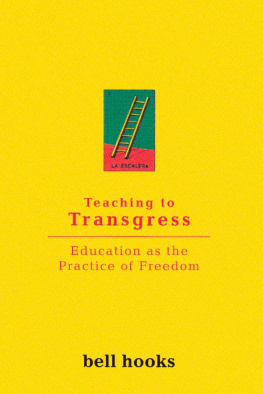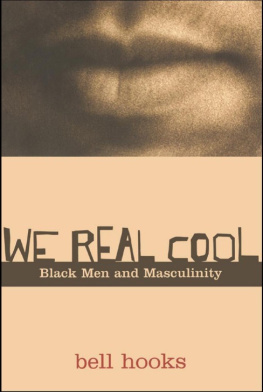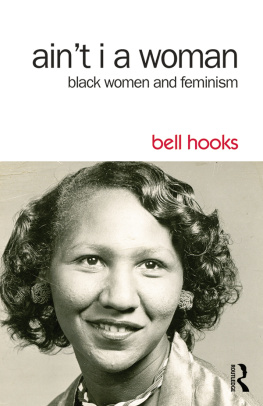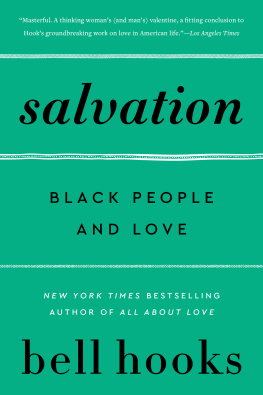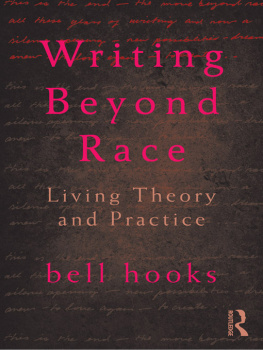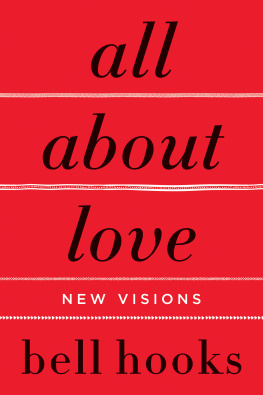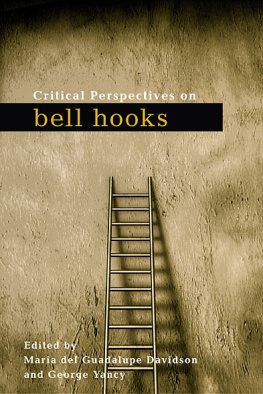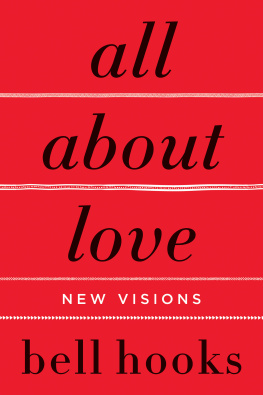Yearning
For bell hooks, the best cultural criticism sees no need to separate politics from the pleasure of reading. Yearning collects together some of hookss classic and early pieces of cultural criticism from the 80s. Addressing topics like pedagogy, postmodernism, and politics, hooks examines a variety of cultural artifacts, from Spike Lees film Do the Right Thing and Wim Wenderss film Wings of Desire to the writings of Zora Neale Hurston and Toni Morrison. The result is a poignant collection of essays which, like all of hookss work, is above all else concerned with transforming oppressive structures of domination.
A cultural critic, an intellectual, and a feminist writer, bell hooks is best known for classic books including Aint I a Woman, Bone Black, All About Love, Rock My Soul, Belonging, We Real Cool, Where We Stand, Teaching to Transgress, Teaching Community, Outlaw Culture, and Reel to Real. hooks is Distinguished Professor in Residence in Appalachian Studies at Berea College, and resides in her home state of Kentucky.
Yearning
Race, Gender, and Cultural Politics
bell hooks
First published 2015
by Routledge
711 Third Avenue, New York, NY 10017
and by Routledge
2 Park Square, Milton Park, Abingdon, Oxon OX14 4RN
Routledge is an imprint of the Taylor & Francis Group, an informa business
2015 Gloria Watkins
The right of Gloria Watkins to be identified as author of this work has been asserted by her in accordance with sections 77 and 78 of the Copyright, Designs and Patents Act 1988.
First edition published
by South End Press 1990
Grateful acknowledgment is made to the following publications, in which portions of this book were previously published: Zeta, Inscriptions, Art Forum, Sojourner, Framework, and Emerge.
All rights reserved. No part of this book may be reprinted or reproduced or utilised in any form or by any electronic, mechanical, or other means, now known or hereafter invented, including photocopying and recording, or in any information storage or retrieval system, without permission in writing from the publishers.
Trademark notice: Product or corporate names may be trademarks or registered trademarks, and are used only for identification and explanation without intent to infringe.
Library of Congress Cataloging-in-Publication Data
hooks, bell, 1952
Yearning: race, gender, and cultural politics / bell hooks.
pages cm
Originally published: Boston, MA : South End Press, 1990.
Includes bibliographical references.
1. African AmericansSocial conditions. 2. African AmericansIntellectual life.
3. African AmericansRace identity. 4. Sex roleUnited States. 5. Feminism
United States. 6. Politics and cultureUnited States. 7. Identity politics
United States. 8. United StatesRace relations. 9. United StatesSocial
conditions1980-I. Title.
E185.86.H742 2015
305.896073dc23
2014023245
ISBN: 978-1-138-82174-3 (hbk)
ISBN: 978-1-138-82175-0 (pbk)
ISBN: 978-1-315-74311-0 (ebk)
Typeset in Adobe Garamond Pro
by Apex CoVantage, LLC
for you to whom i surrender
to you for whom i wait
Contents
liberation scenes
speak this yearning
the chitlin circuit
on black community
homeplace
a site of resistance
critical interrogation
talking race, resisting racism
representations
feminism and black masculinity
sitting at the feet of the messenger
remembering malcolm x
third world diva girls
politics of feminist solidarity
an aesthetic of blackness
strange and oppositional
aesthetic inheritances
history worked by hand
culture to culture
ethnography and cultural studies as critical intervention
saving black folk culture
zora neale hurston as anthropologist and writer
stylish nihilism
race, sex, and class at the movies
representing whiteness
seeing wings of desire
counter-hegemonic art
do the right thing
seductive sexualities
representing blackness in poetry and on screen
black women and men
partnership in the 1990s
an interview with bell hooks by gloria watkins
no, not talking back to myself, january 1989
a final yearning
january 1990
Even though I had been writing cultural criticism for magazines for years, Yearning was the first book length compilation of my work. Putting the diverse essays in this collection together was exciting because it allowed me to express the range of my theoretical interests. Writing about popular culture I could engage the intersections between race, class, and gender. Moreover I had discovered in classroom settings and while giving public lectures that using a visual text, film, art, or television as the base by which to talk about race and gender engaged folks. No matter race, class, gender, everyone seemed to have ideas and ways of thinking about visual narratives that served as a catalyst for meaningful discussion.
Focusing critique on cultural productions opened a space for education for critical consciousness that could serve as a pedagogy of liberation both in the academy and in the larger society. Unlike feminist theory and practice which ultimately demanded commitment to feminist politics and an overall change in society which was experienced as dangerous and threatening, cultural criticism allowed for a more democratic discourse. Although much critique was written from a progressive or radical perspective it did not have a radical militant agenda as its core foundation.
Unlike feminist theory, which was emerging from a more abstract discussion of what it means to challenge patriarchy and create new cultural paradigms, cultural criticism approached from a feminist standpoint could engage audiences more directly by allowing everyone a space to engage in radical critique. And most importantly, it could allow audiences to recognize the interconnectedness of systems of domination. Nowadays it is cool to talk about intersectionality, the overlapping of systems like racism, sexism, class elitism. However interconnectedness is a more vital way of framing the discourse in that it serves as a constant reminder that we cannot change one aspect of the system without changing the whole.
Certainly in the area of race and representation it became evident that cultural producers might create a work that was progressive in its articulation of an anti-racist agenda while relying on sexist stereotypes to give audiences familiar tropes, thus rendering the work less threatening. As a critic I hoped to use cultural criticism to aid in our effort to end domination and oppression in all its forms. This focus allows for an inclusive standpoint where one is not required to choose gender over race or vice versa, where there is not demand that issues of class and sexuality be left out of discussions for fear that radical thinking will be undermined.
Radical visionary cultural criticism aims to do more than deconstruct cultural production, it endeavors to call attention to alternative modes of creating, to new ways of seeing, thinking, and being. When I began to concentrate attention on cultural criticism I was moved by its potential for inclusive focus. I began to think that just as the interconnectedness of systems of domination was a necessary standpoint from which to critique cultural production, it also led me to think deeply about ways we were all connected across race, class, gender, sexuality, and religion.

